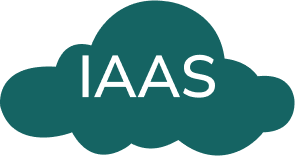Want to learn more?
Join our Info Session Meeting where we discuss the structure of the partnership and how you can benefit from them.
JOIN INFO SESSIONEVENT START...25TH OCTOBER 2024AGENDA
- Partnership with NYSC
- Training Corps Members and Placing them as Interns
- Cost of hiring Corps Members (Abuja and Foreign Companies)
- Managing Expectations with Key stakeholders
You may have heard about “the cloud”; no, not the fluffy white things you see in the sky, but the term used a lot in tech spaces but you’ve been too embarrassed to ask what it means? Don’t worry, we’re here to help.
The easiest way to explain it is; cloud computing is the storing and accessing of data and programs over the internet rather than on premises.
So, who uses cloud computing? Well, everyone, from the application running on your car, to your phone, smart watch, your favourite app; the cloud is now everywhere. It is however especially powerful for businesses. The scalability and flexibility it offers businesses means more and more of them are becoming more open to it. Routine tasks like data protection, software development, with the aid of online Integrated Development Environment hosted in the Cloud.
When a company “moves to the cloud” its IT infrastructure is now stored offsite, at a data center maintained by a cloud computing provider (we’ll get to this later). Cloud providers are responsible for managing the customer’s IT infrastructure, and developing new capabilities to keep pace with market demands.
A cloud service providers, or CSPs, are companies that offer cloud computing services - Infrastructure as a service (IaaS), Platform as a Service (PaaS) and Software as a service (SaaS). They host cloud computing-based infrastructure and platform services for customer organizations. Cloud services are priced using a pay-as-you-go subscription model. This way customers are only charged for resources they consume. These resources include the amount of time a service is used or the storage capacity or virtual machines.
Cloud service providers use their own data centers and compute resources to host cloud computing based infrastructure and platform services for customer organizations. Cloud services typically are priced using various pay-as-you-go subscription models. Customers are charged only for resources they consume, such as the amount of time a service is used or the storage capacity or virtual machines (VM) used. For SaaS products, cloud service providers may either host and deliver their own managed services to users or they can act as a third-party, hosting the application of an independent software vendor. Amazon Web Services (AWS), Google Cloud Platform (GCP) and Microsoft Azure are the most well-known cloud service platforms.
Types Of Cloud Service Providers
IaaS (Infrastructure as a service) Providers:

In this model, the provider delivers infrastructure components that would normally exist physically at a data center. The components could range from servers, storage and
SaaS (Software as a service) Providers:
.png)
These offer business technologies such as data management software, human resources management (HRM) software, customer relationship management (CRM) software and data management software. Traditional software vendors now even have cloud based versions of their on-premises software products.
PaaS (Platform as a Service) Providers:
These vendors offer multifunctional cloud infrastructure and services which are mostly used in software development.
Benefits of Cloud Computing Over Traditional IT Infrastructure
Cost and Flexibility:
The pay-as-you-go model of cloud services enables organizations to only pay for the resources they consume. ending website traffic, Using a cloud service provider also eliminates the need for capital expenses.
Scalability
Organizations can scale IT resources up or down based on the demands of the business.
Resilience and Elasticity
Applications and information which the cloud host are distributed evenly across the servers, which are all connected. The failure of one server therefore doesn’t affect the data store. It also provides more storage space and server resources. The better computing power means software and applications will perform faster. This contracts greatly with traditional IT systems as they lack the same resilience and high level of server performance. The limited capacity and susceptibility to downtime can cripple productivity in the workplace. In a world where premium tech skills are the in high demand with cloud computing being one of the frontrunners, we have added it to our course offerings which can be accessed on our tech training page.
Want to learn more?
Join our Info Session Meeting where we discuss the structure of the partnership and how you can benefit from them.
REGISTER NOWEVENT START...25TH OCTOBER 2024AGENDA
- Partnership with NYSC
- Training Corps Members and Placing them as Interns
- Cost of hiring Corps Members (Abuja and Foreign Companies)
- Managing Expectations with Key stakeholders
Other Publications

2020-01-01• 12 Mins Read
Written by: lase
Foundation classes in Sabilink
Here's more about our foundation classes...

2020-01-01• 12 Mins Read
Written by: lase
The importance of Networking in Online Class
Here, we expantiate on the benefits of networking ...

2020-01-01• 12 Mins Read
Written by: lase
Peer Review
How Sabilink's process is changing the tech learni...


